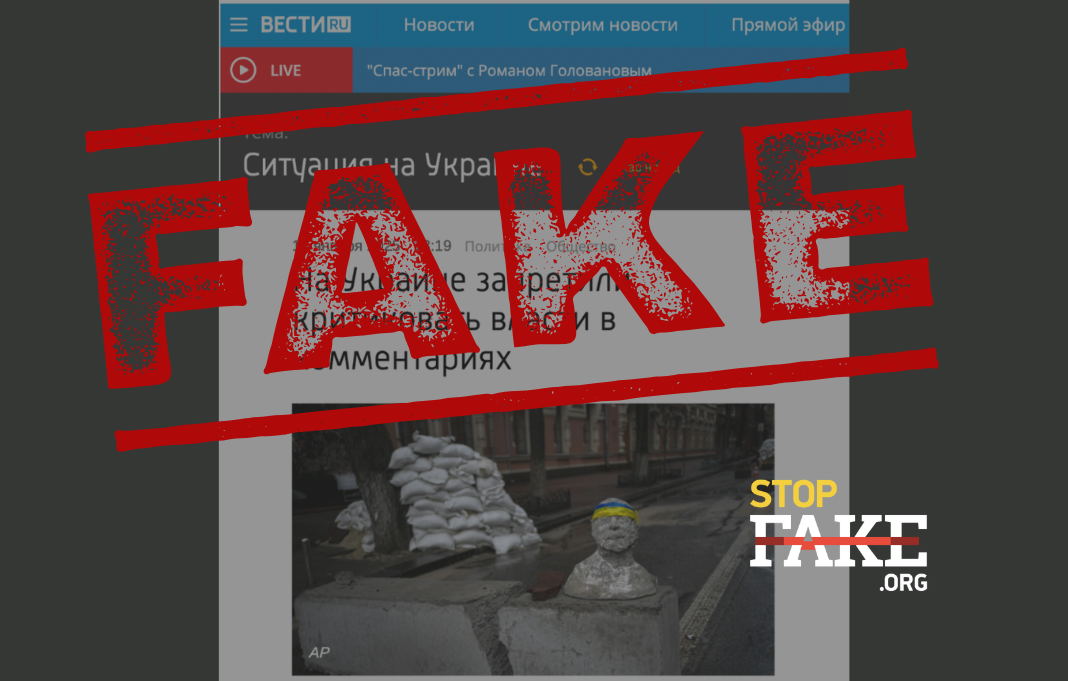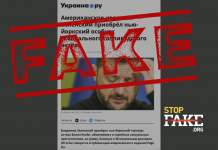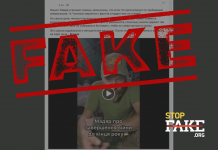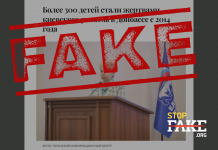There are no provisions in Ukrainian law that prohibit citizens from criticizing the authorities, including in comments on social media or other online platforms. The new draft law protects media outlets from being held liable for the actions of users, but does not introduce censorship. Instead, it clarifies existing obligations regarding content moderation.
Russian propagandists often distort the essence of Ukrainian legislative initiatives. This time, Kremlin propaganda claims a “return to censorship in Ukraine” and a ban on “criticism of the authorities in comments” following the adoption of draft law No. 11321.
“The Verkhovna Rada has passed a scandalous bill requiring media outlets to delete negative comments about officials under news articles. The initiative was proposed by Yaroslav Yurchyshyn, head of the Committee for Freedom of Speech,” Russian TV news reports.
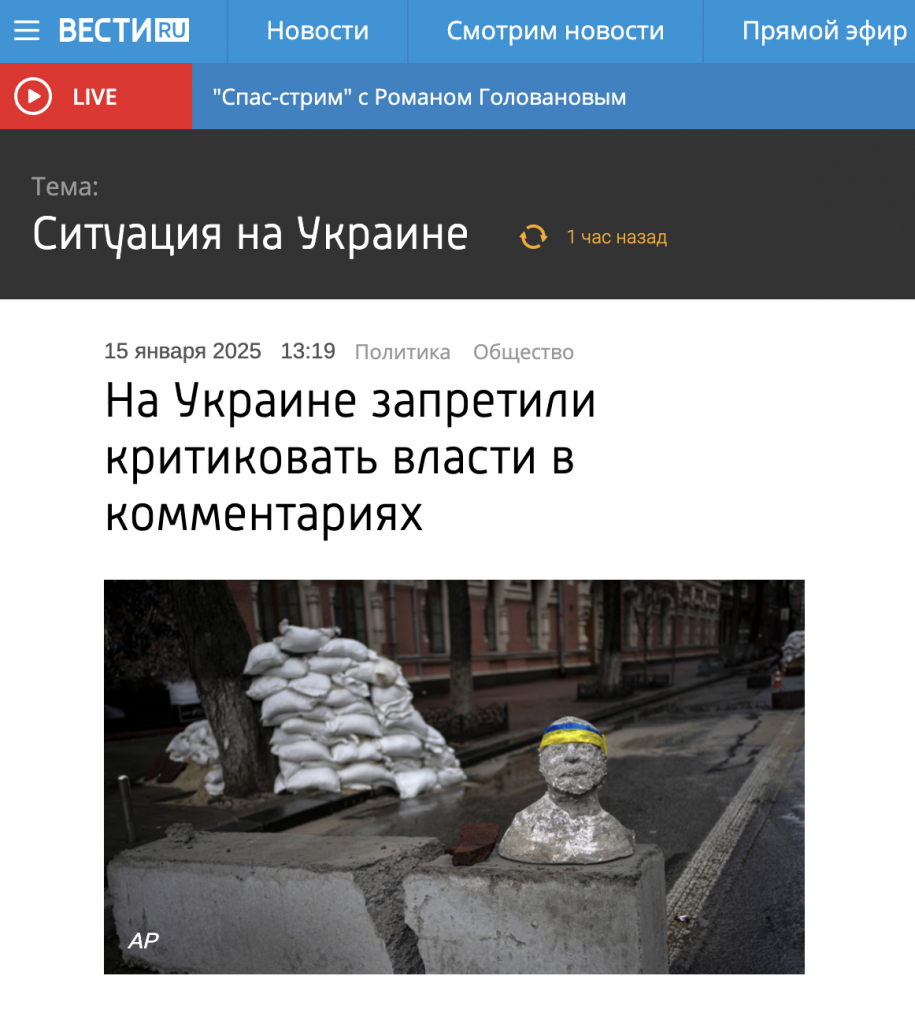

Propaganda built its disinformation on the basis of real news: the approval of draft law No. 11321, which amends other laws to strengthen guarantees for the functioning of the media, journalists and citizens’ access to information.
Specifically, the document clarifies Part 4 of Article 117 of Ukraine’s “Law on the Media,” which states that “online media entities are exempt from liability for disseminating false information, as well as information whose dissemination is prohibited by Articles 36, 42 and 119 of this Law, if such information was disseminated by users in comment sections or user publication sections on the website or webpage of such media. This is subject to the condition that the online media entity restricts access to such information within three working days, not only from the date of receipt of a relevant complaint or directive from the National Council, but also from the date of receipt of a court decision to open a related case“.
According to lawyers from the Institute of Mass Information (IMI), “this amendment will make the process more transparent and convenient for the media, as it will allow them to avoid protracted legal disputes”. IMI also noted that the rule on media responsibility for third-party comments on their platforms has been in existence for a long time (in Ukraine, at least since 2009) and has been developed through judicial practice, including by the European Court of Human Rights.
Since 2023, Ukraine’s “Law on Media” has given online media three working days to restrict access to such content after receiving a complaint or a directive from the National Council. Draft Law No. 11321 clarifies that this period also begins from the moment a court notice is received. These changes protect the media from liability for the actions of users, do not introduce censorship, and merely clarify existing obligations regarding content moderation.
The bill’s initiator, Yaroslav Yurchyshyn, chairman of the Verkhovna Rada’s Committee on Freedom of Speech, also clarified that the law does not impose any restrictions on media or users. He explained that now, “if a court case is initiated and a reasoned decision is received from the court regarding material that violates the ‘Law on the Media,’ media outlets can independently decide how to handle such comments. They can remove it within three days of receiving the court’s information and bear no responsibility. Alternatively, if they agree with the position of the comment, they can leave it and defend their stance in court.”
Previously, StopFake debunked claims that the Ukrainian government allegedly imposed censorship on media coverage of Motorola’s death, or that the EU allegedly imposed censorship ahead of the European Parliament elections.


